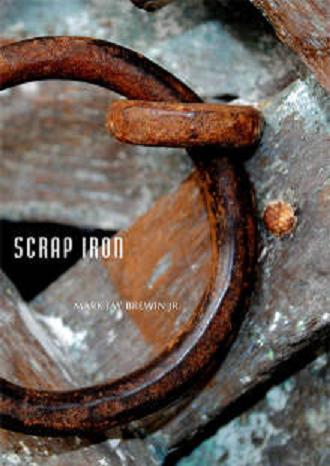Micro Review of Scrap Iron, by Mark Jay Brewin Jr.
Micro Review of Scrap Iron, by Mark Jay Brewin Jr.
University of Utah Press, 2013: $12.95 paperback
Brewin has given us the leftover bits, the small memories that comprise a larger childhood, and in doing so he’s built a palace for his readers. Granted, that palace is built with: “batteries in the butter tray, leftover cake between two paper plates wrapped in green cellophane,/ a long-neck old enough for the label to have peeled itself off—everything measured and the symmetry alien,/ clean cut and categorized so I can’t understand.” That excerpt comes from the poem “On Garages,” which is just one of the many poems in here wrestling with inheritance, the junk passed down from father to son. The speaker clings to these Whitmanian lists in the hopes that someday he’ll be able to sit down and make sense of it all, even if he’s deluding himself, even if the reader knows better.
The accumulation of moments—moments where the speaker risks sentimentality and stops short—are too many to count, and this is probably the most rewarding feature of the book. Brewin pushes us, closer and closer to the edge, and he routinely breaks our hearts with his honesty and his double-edged phrasing. At the end of the title poem “Scrap Iron,” the speaker sums up the emotional tenor of the book. He’s remembering when as a kid he and his father would drive scrap to the junkyard to “cash in,” how his father made him hide on the way in and then made him scramble out of the junkyard, meet back up on the outside. It made the truck lighter and thus the payout that much bigger, and here the speaker reminds himself (and us) of that moment: “if I didn’t get caught, my body was an extra hundred and twenty-some pounds of scrap.” How does a reader come back from a moment like this unaffected? How does a reader keep themselves from wishing they too were ever that valuable?
—by Travis Mossotti
